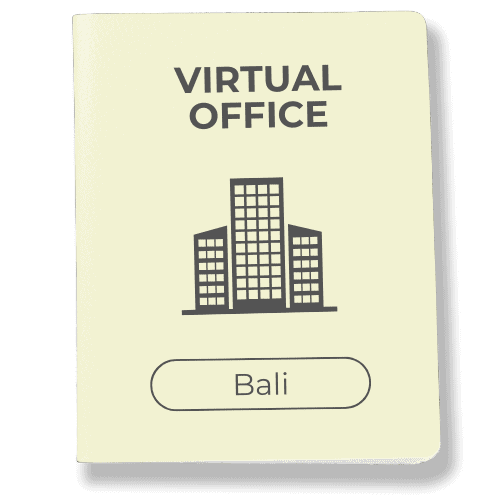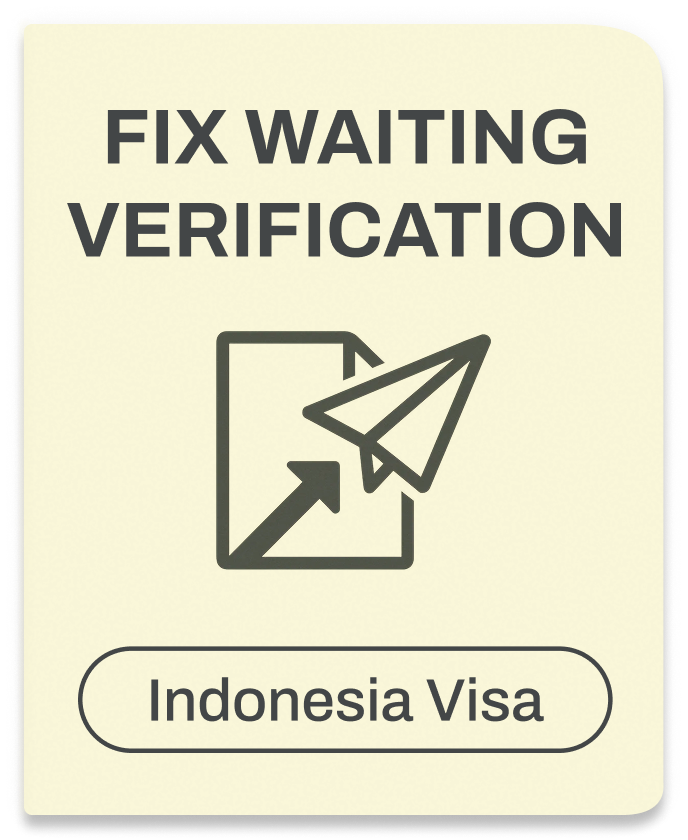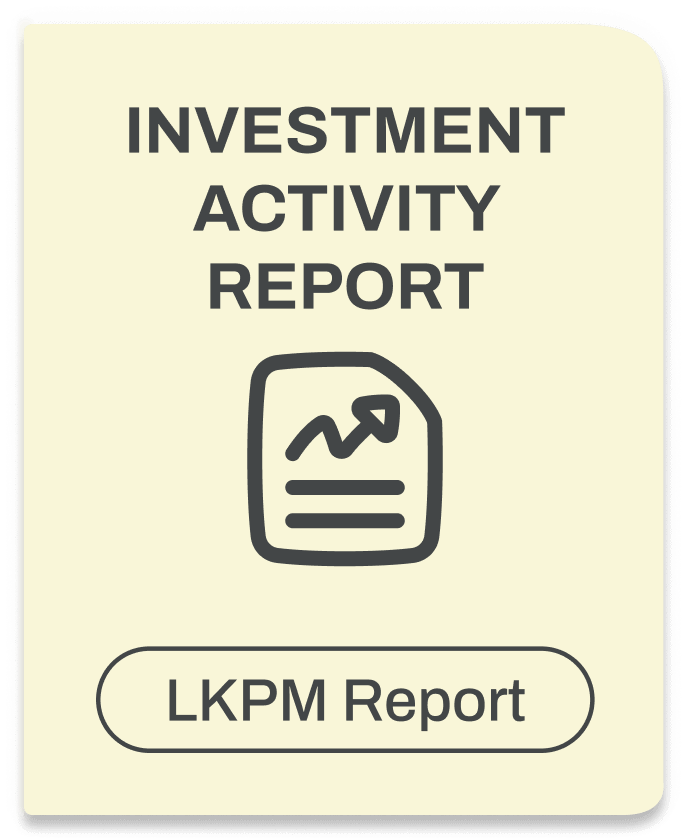Setting Up a PT PMA in Indonesia: A Straight-Talking Guide for Foreign Founders

Indonesia’s economy is expanding roughly 5 percent annually, turning the archipelago into a strategic hub for foreign investors looking to enter Southeast Asia. For those ready to launch a company in Indonesia, the company PT PMA (Perseroan Terbatas Penanaman Modal Asing) is the go-to structure. This foreign investment company combines full operational capability with limited liability protections for shareholders.
This guide walks you through setting up a foreign-owned company, from choosing a suitable business sector to registering your legal entity and securing your Business Identification Number (NIB). Along the way, we’ll break down how foreign ownership is regulated, what counts as paid-up capital, and how the Investment Coordinating Board (BKPM) plays a central role in getting your business licensed and compliant.
Whether you plan to establish a PT PMA in Indonesia or start smaller with a representative office, this guide gives you a clear roadmap to navigate Indonesian regulations and unlock opportunities in one of Asia’s most promising markets.
Table of Contents
What Is a PT PMA (Foreign-Owned Company) in Indonesia?
A PT PMA (Perseroan Terbatas Penanaman Modal Asing) is the standard legal structure for foreign nationals and investors wanting to run a business in Indonesia. It’s essentially a limited liability company allowing foreign ownership while protecting your assets.
Unlike a local company, a PT PMA gives you the legal right to generate revenue, hire employees, acquire property (in specific sectors), and fully participate in Indonesia’s fast-growing business landscape. Once you’ve registered through the Investment Coordinating Board (BKPM) and deposited your paid-up capital, your company will receive a Business Identification Number (NIB), your official operating license. Additionally, you must comply with the minimum capital requirement, which can vary based on the business sector, such as IDR 2.5 billion or IDR 10 billion.
Before jumping in, it’s worth considering your long-term strategy. Some foreign entrepreneurs use a representative office to test the waters before committing to a full PT PMA setup. A rep office is easier and quicker to establish, but it doesn’t allow for revenue-generating activities or issuing invoices. On the other hand, a PT PMA offers full commercial rights but comes with stricter capital requirements and a more involved registration process.
Here’s a quick comparison:
| PT PMA | Representative Office |
| Full commercial activities | Market research & liaison only |
| Can invoice clients | Cannot generate revenue |
| Must follow the Positive Investment List | 100% foreign-owned, limited functions |
| Takes around 30 days to register | 7–10 days setup time |
| Requires IDR 10 billion in committed investment | No capital required |
Choosing between a PT PMA and a representative office depends on your goals, business classification, and how quickly you want to enter the market. If you plan to conduct business at scale, a PT PMA provides the legal framework, operational freedom, and foreign ownership rights to move forward confidently.
Why Set Up a Company in Indonesia?
Setting up a company in Indonesia isn’t just about tapping into a large market; it’s about positioning yourself in a region full of momentum and potential. As Southeast Asia’s largest economy, Indonesia offers a dynamic mix of growth, government support, and business opportunities, making it an attractive destination for foreign investors. Careful planning is essential to navigate the market effectively and achieve long-term success.
Here’s why more foreign entrepreneurs are choosing Indonesia as their base:
A Fast-Growing Market
With over 270 million people, many of them young, tech-savvy, and increasingly affluent, Indonesia offers a vast consumer base. Rising middle-class spending and strong GDP growth (around 5% annually) create a fertile ground for businesses across sectors, especially those aligned with digital services, e-commerce, and infrastructure.
However, navigating the legal requirements for foreign investment in Indonesia can be complex, necessitating engagement with legal and real estate professionals to ensure all necessary steps are performed correctly.
Strong Government Support for Foreign Investment
The Indonesian government actively encourages foreign investment through policy reforms and digital infrastructure. The Investment Coordinating Board (BKPM) and the OSS system have made it easier than ever to register a business, obtain a business license, and stay compliant. There are incentives and fast-track options for those in export-driven or high-tech sectors.
The Negative Investment List also outlines sectors where foreign investment is restricted or subject to ownership limitations, providing crucial information for foreign investors on industry openness and required local partnerships.
A Booming Startup and Tech Scene
Indonesia’s digital economy is one of the fastest-growing in Asia. Whether you’re in SaaS, fintech, or logistics, the country’s expanding tech ecosystem creates plenty of room for foreign-owned companies to offer specialized services and collaborate with local partners. Add a favorable time zone for APAC operations and access to regional markets, and it’s easy to see the appeal. Collaborating with legal and real estate professionals is crucial to navigate the complexities of establishing a PT PMA and acquiring HGB in Indonesia.
How Much Capital Do You Need?
One of the most common questions foreign investors ask when starting a PT PMA is: How much money do I need to commit?
The Indonesian government requires a minimum investment of IDR 10 billion (around USD 650,000) for all foreign-owned companies, regardless of industry. This figure represents your total investment plan, not just what you transfer up front. Think of it as your long-term financial commitment to doing business in Indonesia. The minimum capital requirements are set to attract larger-scale investments while safeguarding smaller local companies.
At least 25%, or IDR 2.5 billion, must be deposited as paid-up capital into your Indonesian bank account. This transfer typically happens after your company receives its Business Identification Number (NIB) and before applying for additional operational licenses.
Here’s a quick breakdown of the capital requirements:
| Requirement | Amount |
| Total minimum investment | IDR 10 billion |
| Minimum paid-up capital | IDR 2.5 billion (25%) |
| Transfer deadline | Before operational licensing |
You don’t need to submit a physical receipt of this capital transfer during registration with BKPM, but the funds must be ready for audit or reporting if requested. This applies whether you’re setting up the PT PMA independently or alongside a suitable local partner.
It’s a serious commitment that sends a strong signal to the Indonesian government that you’re invested for the long haul.
Step-by-Step PT PMA Setup in Indonesia
Setting up a foreign-owned company in Indonesia, or how to set up a PT PMA, isn’t as intimidating as it might seem. With the proper guidance, your company establishment can be completed in about 30 working days, even if you’re managing it remotely.
Here’s how the typical PT PMA setup unfolds:
Step 1: Reserve Your Company Name
Start by choosing a unique name that follows Indonesian naming conventions. It must include at least three words and can’t be too similar to an existing legal entity. A distinct name ensures smoother registration and helps build your brand from the start.
Step 2: Draft the Deed of Establishment
Your notary will prepare this document, which includes your Articles of Association. It outlines the requirement for at least two shareholders, the capital structure, and your intended business activities. This legal step forms the backbone of your company.
Step 3: Get Approval from the Ministry of Law and Human Rights
Once notarized, your deed is submitted for approval. After the Ministry signs off, your legal entity setup is officially recognized.
Step 4: Register with the OSS System to Get Your NIB
Using the Online Single Submission (OSS) system, you’ll apply for your Business Identification Number (NIB). This is our all-in-one registration, covering your tax ID, import-export license, social security registration, and more.
Step 5: Open a Corporate Bank Account
With your NIB, you can open a business bank account in Indonesia. This is where you’ll transfer your paid-up capital, which is required before you apply for further operational licenses or submit your company registration certificate. Shareholders can sign a capital statement letter to pledge that the required paid-up capital may be transferred without the actual transfer occurring, ensuring compliance with the minimum capital requirements set by the Indonesian government.
Each of these steps ensures that your foreign investment company is legally established and ready to conduct business in compliance with Indonesian regulations. Most entrepreneurs complete the process faster by working with professional assistance, especially when navigating government systems or language barriers.
Setting Up a Representative Office
A representative office offers a viable alternative for foreign companies looking to establish a presence in Indonesia without committing to a full PT PMA setup. This type of office allows you to explore the Indonesian market and build local relationships without being considered a permanent establishment.
A representative office is limited in its scope of activities. It cannot engage in direct business activities such as sales or revenue generation. Instead, it serves as a liaison office, focusing on market research, networking, and other non-commercial activities.
Foreign investors must obtain a representative office license from the Indonesian Investment Coordinating Board (BKPM) to set up a representative office. The process involves applying along with necessary documentation, such as the parent company’s articles of association and a letter of appointment for the chief representative.
The license is typically valid for three years and can be renewed. The representative office must employ at least one Indonesian citizen and appoint a chief representative responsible for overseeing the office’s activities. This chief representative is the main point of contact between the foreign company and Indonesian authorities.
While a representative office cannot generate revenue, it is still subject to Indonesian regulations and laws, including tax laws. Therefore, foreign investors must consult with the BKPM and other relevant authorities to fully comply with all requirements.
A representative office can be a strategic first step for foreign companies considering a more significant investment in Indonesia. It allows you to understand the local market dynamics and build a foundation for future expansion.
Banking and Financial Requirements
After your PT PMA is legally established, the next significant step is opening an Indonesian bank account under your company name. This corporate account is where you’ll deposit your paid-up capital and handle all financial transactions tied to your business.
Most banks will ask for the following documents:
| Document | Issued By / Notes |
| Business Identification Number (NIB) | Generated via the OSS system |
| Deed of Establishment | Notarized and approved by the Ministry of Law |
| Tax Identification Number (NPWP) | Issued by the Directorate General of Taxes |
| Domicile Letter or Lease Agreement | Confirms your official business address |
| IDs of Directors and Shareholders | Passport (foreign nationals) / KTP (Indonesian citizens) |
Once your bank account is active, you’ll need to transfer at least 25% of your committed minimum capital investment, IDR 2.5 billion, into the account. While the Investment Coordinating Board (BKPM) doesn’t ask for proof of this transfer during registration, it must be available for audits or future financial planning reports. Additionally, obtaining an investor kitas requires meeting financial criteria, such as having 1 billion IDR in shares, which enables foreign investors to operate legally in Indonesia through a PT PMA structure.
Also worth noting: if your company crosses IDR 50 billion in revenue or holds assets above IDR 25 billion, you must prepare audited financial statements annually. This is where maintaining accurate records becomes critical.
To avoid delays, ensure that your company details match exactly across your NIB, NPWP, and bank documentation. Even minor mismatches can lead to account rejection or registration issues.
Role of the Investment Coordinating Board (BKPM)
The Investment Coordinating Board (BKPM), now operating under the Ministry of Investment, is your key ally when setting up a foreign-owned company in Indonesia. The central government oversees foreign direct investment, facilitates company registration, and ensures businesses meet local regulatory requirements. Legal entities, including individuals and corporations, must navigate these regulations with the help of legal professionals.
BKPM manages the Online Single Submission (OSS) system, which centralizes most business licensing processes. Through this digital portal, you can apply for your Business Identification Number (NIB), register your tax ID, and start obtaining any industry-specific permits.
Beyond just registration, BKPM also plays an active role in monitoring how foreign companies carry out their investment plans. This is done through periodic reporting requirements, like the Investment Activity Report (LKPM).
Here’s what the BKPM typically covers for a PT PMA:
- Issuing your NIB (which integrates tax, customs, and import-export registrations)
- Monitoring your investment through LKPM filings
- Facilitating licensing for the regulated business sector
- Guiding you through local compliance issues and sectoral restrictions under the Positive Investment List
Business Identification Number (NIB)
Your Business Identification Number (NIB) is the foundation of your company’s legal identity in Indonesia. Issued through the OSS system under BKPM, the NIB consolidates multiple requirements into one: it acts as your company’s tax number, import-export license, BPJS (social security) registration, and general business license.
Without the NIB, your PT PMA can’t legally operate, hire employees, open an Indonesian bank account, or apply for industry-specific permits. It’s the first document most government institutions will require when verifying your foreign investment company status.
Securing your NIB is fully digital and typically takes a few days, assuming your company documents and capital requirements are in order.
Investment Reporting (LKPM)
Once your NIB is issued, your responsibilities as an investor don’t stop. As a foreign company operating in Indonesia, you must regularly submit an Investment Activity Report (LKPM) through the OSS system. This is how the Indonesian government tracks whether you’re following through on your original investment plan. Additionally, you must adhere to the minimum investment plan, which requires an initial investment of $700,000 and a certain amount deposited as paid-up capital.
These reports include updates on your business progress, capital usage, hiring, and expansion activities. The reporting frequency depends on your business classification:
| Company Type | LKPM Frequency |
| High-risk or strategic sectors | Quarterly |
| Low-risk or non-priority sectors | Semi-annually |
Missing an LKPM deadline can lead to fines, licensing issues, or project delays, so you must mark your calendar and have the right team or partner to manage the process.
Sector-Specific Licensing
While a PT PMA gives you the general right to operate, some business sectors in Indonesia require additional permits before you can launch full operations. These licenses often come from specialized ministries and apply to specific industries like:
- Financial technology (fintech)
- Mining and natural resources
- Pharmaceuticals and healthcare
- Education and media
- Real estate and property management
It is also crucial to be aware of the maximum allowed percentage of foreign ownership in these sectors, as outlined in the Negative Investment List, and to consider partnering with a local entity if these limits are reached.
Operational Requirements
Once your PT PMA is established, it must adhere to various operational requirements to comply with Indonesian laws and regulations. These requirements ensure your business operates smoothly and avoids legal or financial penalties.
First and foremost, your PT PMA must obtain all necessary licenses and permits specific to your business sector. This includes registering with the Indonesian tax office for a tax identification number (NPWP). The NPWP is essential for fulfilling your tax obligations and conducting financial transactions.
A PT PMA must have a minimum of two shareholders, with at least one being a foreign investor. Additionally, the company must have a board of directors and a board of commissioners. At least one board member of the commissioners must be an Indonesian citizen, ensuring local representation in the company’s governance.
Maintaining a bank account in Indonesia is another critical requirement. All financial transactions, including the deposit of your paid-up capital, must be conducted through this account. This ensures transparency and compliance with financial regulations.
Compliance with Indonesian labor laws is also essential. Your PT PMA must adhere to regulations related to employment, wages, and working conditions. This includes registering employees with the BPJS (social security) system and ensuring fair labor practices.
Foreign investors should ensure that their PT PMA company meets all operational requirements to avoid penalties or fines. Given the complexity of Indonesian regulations, it is highly recommended to seek professional assistance. Legal and financial advisors can help navigate the regulatory landscape, ensuring your business remains compliant and operates efficiently.
By following these operational requirements, your PT PMA will be well-positioned to succeed in the dynamic Indonesian market.
Legal Protection for Foreign Shareholders
One of the key reasons foreign individuals choose to set up a PT PMA is the strong legal protection it offers. As a limited liability company, a PT PMA shields your assets. Your financial responsibility is strictly restricted to the amount of your paid-up capital. Setting up your own company in Indonesia allows you to indirectly own property by having the company purchase it.
This structure is governed by Indonesian Law No. 40 of 2007 on Limited Liability Companies, which ensures transparent corporate governance and clear shareholder rights. Even in the event of legal disputes or debt obligations, your liability ends at your capital stake, not your bank account or property.
Here’s what this means for foreign ownership in practical terms:
- Your liability is limited to the value of your shares
- You’re entitled to vote based on shareholding
- Profits can be distributed as dividends
- Shares can be transferred (with proper approvals)
- You can access financial reports and demand accountability
FAQs
What kind of legal protection do I get as a foreign shareholder? As a limited liability company, a PT PMA ensures that your liability is limited to your capital contribution. Your assets are protected under Company Law No. 40/2007, giving you peace of mind as a foreign investor in Indonesia.
Can I repatriate profits or dividends to my home country? Yes. After fulfilling your tax obligations in Indonesia, you’re free to transfer profits or dividends abroad in foreign currency. This is a significant advantage of setting up a PT PMA rather than operating under informal arrangements.
How long can a representative office operate in Indonesia? A representative office can operate for up to five years and is renewable. However, it must remain non-revenue-generating, meaning you can conduct market research or liaison activities, but not issue invoices or earn income.
What are my tax responsibilities as a PT PMA owner? As a PT PMA owner, you are required to pay taxes in compliance with Indonesian regulations. Managing your finances and adhering to tax obligations are essential for running your business legally in Bali.
Ready to Apply or Extend Your Visa?
Let our visa specialists handle your application.



















